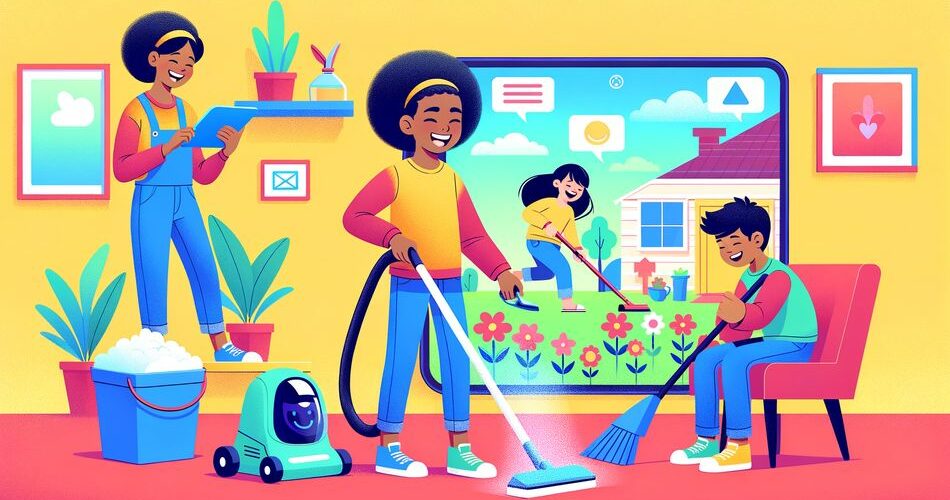As parents, we often grapple with the challenge of getting our children to complete everyday chores without turning the house into a battleground. The secret to transforming this struggle into a productive and enjoyable experience might lie in an unexpected place: play. Gamifying everyday tasks is an innovative approach to parenting that not only fosters responsibility but also nurtures creativity, problem-solving skills, and family bonding. Read on to discover how you can use the power of play to make chores fun and engaging for your little ones.
Understanding Gamification
Gamification involves applying game principles and design elements to non-game contexts. This means turning mundane tasks into playful activities by incorporating elements like points, challenges, rewards, and competition. Children are naturally drawn to games because they offer excitement, structure, and a sense of accomplishment. By using these elements, parents can motivate their kids to tackle chores with enthusiasm.
Why Gamifying Chores Works
Gamifying chores leverages several psychological principles to make tasks more appealing:
- Intrinsic Motivation: Games tap into a child’s internal desire for fun and achievement, making them more likely to participate willingly.
- Clear Goals and Feedback: Games provide clear objectives and immediate feedback, helping children understand what needs to be done and how well they’re doing it.
- Progress and Achievement: Earning points or rewards for completed tasks gives children a sense of progress and accomplishment, boosting their confidence and motivation.
Practical Tips for Gamifying Chores
Now that we understand the benefits, let’s explore some practical ways to gamify everyday tasks:
1. Create a Chore Chart with Points
Design a colorful chore chart where each completed task earns points or stickers. Assign different point values to various tasks based on difficulty and time required. For instance, making the bed might be worth one point, while vacuuming the living room could be worth five points. At the end of the week, points can be redeemed for rewards like screen time, a small toy, or a family outing.
2. Time-Based Challenges
Introduce a time element to make chores more exciting. Use a timer to challenge your child to complete a task within a set timeframe. For example, see if they can pick up their toys in five minutes, or sort the laundry before a song ends. This adds an element of urgency and competition that can make even the most mundane task thrilling.
3. Teamwork Tasks
Turn chores into collaborative games by involving the whole family. Assign roles and create teams to tackle different tasks around the house. Not only does this build a sense of teamwork and cooperation, but it also reduces the burden on any one person, making the process more enjoyable for everyone involved.
4. Storytelling and Role Play
Incorporate storytelling to make chores more imaginative. Pretend to be superheroes on a mission to “defeat the mess” or explorers uncovering hidden treasures while cleaning the yard. Role-playing transforms chores into exciting adventures, capturing your child’s imagination and making tasks less tedious.
5. Use Technology
There are numerous apps and online platforms designed to gamify chores. Apps like ChoreMonster or Habitica turn everyday tasks into engaging games with characters, challenges, and rewards. Integrating technology can be particularly effective for older children and teens, who may respond well to digital incentives.
Monitoring Progress and Adjusting
Gamifying chores is not a one-size-fits-all solution, and what works for one child might not work for another. Regularly monitor your child’s response to different games and be prepared to adjust the system as needed. Encourage open communication and let your child have a say in designing the games and choosing the rewards. This not only makes them feel valued but also increases their investment in the process.
Conclusion
Parenting through play by gamifying everyday tasks is a powerful strategy to make chores fun and manageable. It fosters a sense of responsibility while enhancing family bonds and instilling positive habits that can last a lifetime. By understanding the principles of gamification and creatively applying them to household chores, you can transform daily routines into enjoyable opportunities for growth and connection. So, roll up your sleeves, gather your little helpers, and turn chore time into game time at Growing Together!

